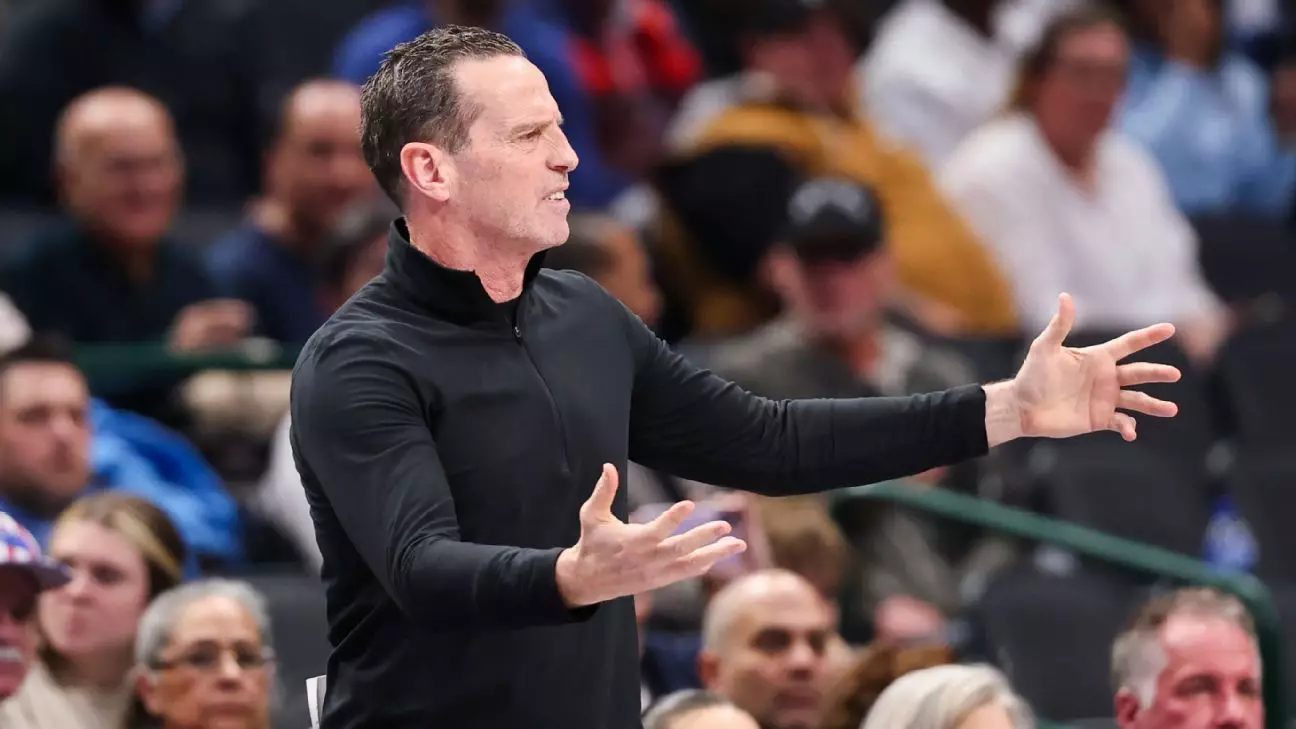In the gritty landscape of the NBA playoffs, where every point counts and every decision can sway the outcome, emotions run high—especially in critical matchups like the recent face-off between the Cleveland Cavaliers and Indiana Pacers. Following a heart-stopping, nail-biting game that ended with a slim victory for the Pacers, coach Kenny Atkinson of the Cavaliers found himself grappling with the aftermath of missed officiating calls. While the NBA’s Last Two Minute Report acknowledged three incorrect non-calls in the game’s final moments—one of which led directly to Tyrese Haliburton’s decisive three-pointer—Atkinson chose not to cast blame solely on the officiating. Instead, he pointed his focus towards his team’s performance, emphasizing the lessons learned in the heat of the moment.
The emotional turmoil that players, coaches, and fans experience during such pivotal games extends beyond the simple tally of points. This frustration cuts to the core of competitive sports, exposing the raw feelings that come with striving for victory. Atkinson’s refusal to be a scapegoat for the officials highlights a depth of character and a commitment to accountability that transcends the immediate thrill or disappointment of any single game.
Lessons from Loss
What rises from the ashes of defeat is often more valuable than the fleeting euphoria of victory. In his post-game reflections, Atkinson didn’t merely lament missed calls; he scrutinized the series of events that led to the Cavaliers relinquishing a commanding 20-point lead. The coach’s candidness about shared responsibility—between players, coaching decisions, and even the referees—points to an essential truth in sports: the game is a collaborative effort. No single entity holds the weight of the outcome.
This loss serves as a microcosm of larger truths about competition. Mistakes—theirs and others’—can compound rapidly, eroding your grip on victory. It’s a harsh teacher but also one that fosters resilience. The emotional strain of such a game, with its swift turns and breakdowns, cultivates a deeper understanding of teamwork, discipline, and the relentless pursuit of improvement.
Systemic Challenges in Officiating
While Atkinson took a balanced approach to assessing the game, one cannot ignore the systemic challenges that officiating presents in high-stakes matches. The missed calls highlighted by the NBA—ranging from lane violations to a potential technical foul on Donovan Mitchell—speak to a bigger narrative surrounding officiating in the league. Brilliant athletes and coaches alike find themselves navigating an unpredictable framework where human error can alter fortunes in seconds.
The NBA’s current model of transparency, releasing reports that indicate officiating errors post-game, raises important questions about accountability. While it offers insight, the emotional toll on those involved is significant. Teams often feel at the mercy of a system that leaves room for interpretation, and while it fosters scrutiny of referee decisions, it can also amplify feelings of frustration within the losing squad and their fanbase.
Emphasizing Perspective in Defeat
Despite the valid reasons to feel aggrieved, it seems paramount to shift the narrative from blame to opportunity. In an era where self-awareness and personal growth take center stage, Atkinson’s framing of the Cavaliers’ shortcomings becomes an exercise in resilience. Understanding how styles of play, coaching strategies, and even emotions contribute to a game’s outcome fosters a growth mindset.
Rick Carlisle’s comment about the Pacers not expecting “gifts from the refs” amplifies this narrative. In maintaining a willingness to confront challenges without reliance on external factors, both coaches encapsulate a healthy approach to competition. By examining the intricacies of their own teams—players’ mental states, decision-making, and shared accountability—they prepare not just for the next game, but for long-term growth.
The beauty of high-stakes competitions like the NBA playoffs lies within their chaotic, unpredictable essence. Each game teaches powerful lessons that extend beyond statistics, seep into the players’ identities, and culminate in a culminating drama that defines our collective love for sports. In a world constantly seeking clarity amidst confusion, it’s the lessons gleaned from defeats that often mold the true champions of the game.

